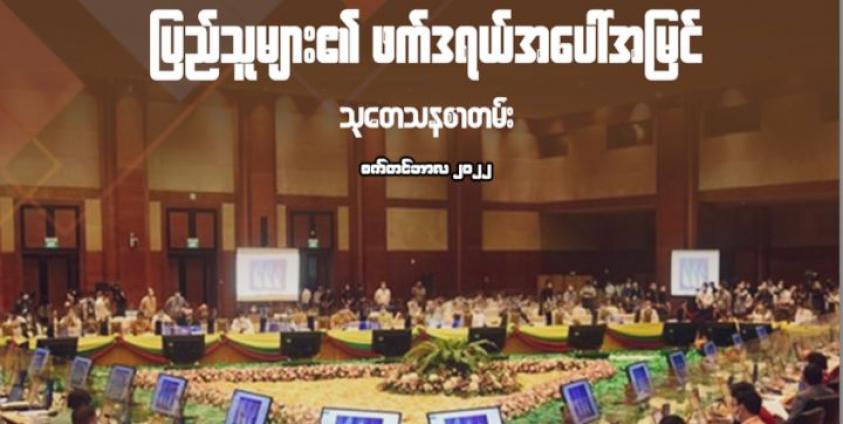Accordingly a research report on the public understanding on Federalism, released by a Mon research group, Rehmonnya Institute for Civic Engagement (RICE), it highlights the key challenges in re-building the Federal Union of Burma/Myanmar are the unity among the democratic force, led by majority Burman (Bama) people and the federal force of ethnic people; and the existing 2008 Constitution and the Burmese Army’s role in politics.
“Since it was at the time of the coup, we could not conduct our research widely and openly. We relied on online surveys and asked the questions. But the respondents are from different ethnic backgrounds and different parts of the country. I expected, even though the respondents' numbers were low, the results are reliable”, said a member in the RICE research team.
In their research, the RICE Research Team put out about 10 questions. 7 questions are almost on the formation of the Federal Union and the remaining questions are on the formation and powers in State.
Most respondents in the survey agree that the enormous challenges to the formation of the Federal Union are the civil war and the existing 2008 Constitution, in which the Burmese Army has had political power. Respondents agree that there must be clear power separation between Federal level and State level.
In the formation of a Federal Union, it must form with ‘Federal Units’. Federal Units will be based on ethnic people, those who have majorities in respective territories, and multi-ethnic States, in which many ethnic people are living. 60 percents of the respondents said that the Bama State must be formed like other Federal Units.
When a research question asks, ‘do you believe that there is a unity between the democratic force, led by majority Bama people, and the federal force led by almost non-Bama ethnic people?’, and about 66 percents of respondents said ‘No’. But 14 percents said ‘yes’, while others said, ‘they don’t know exactly’.
When the Research Team asked about the State Constitution, almost 90 percent of the respondents said that all States must have their own constitution, and only 10 percent said that basic law is enough. Almost all respondents agreed that the State must have power for taxation and revenue; and defense and security for their own State.
RICE Research Report suggests and recommends that there is a need to increase public knowledge and encourage public dialogues to understand more on federalism. It also urges the National Unity Consultative Council (NUCC), to distribute the Federal Democracy Charters widely to the public.








